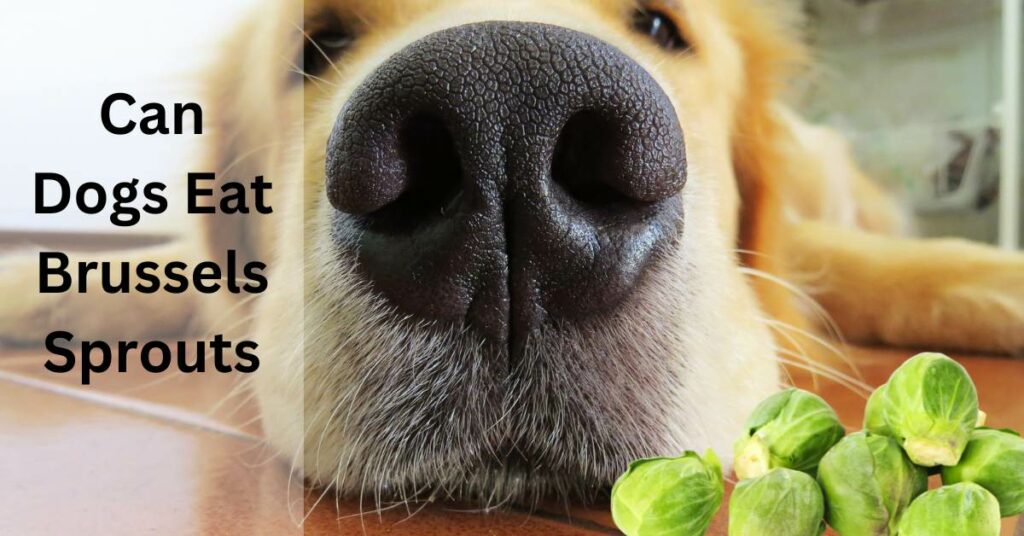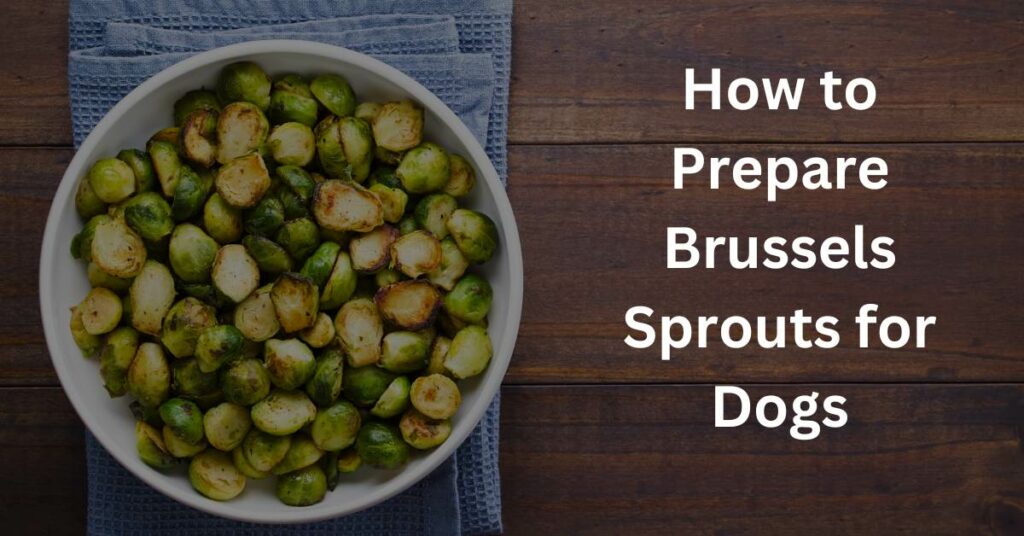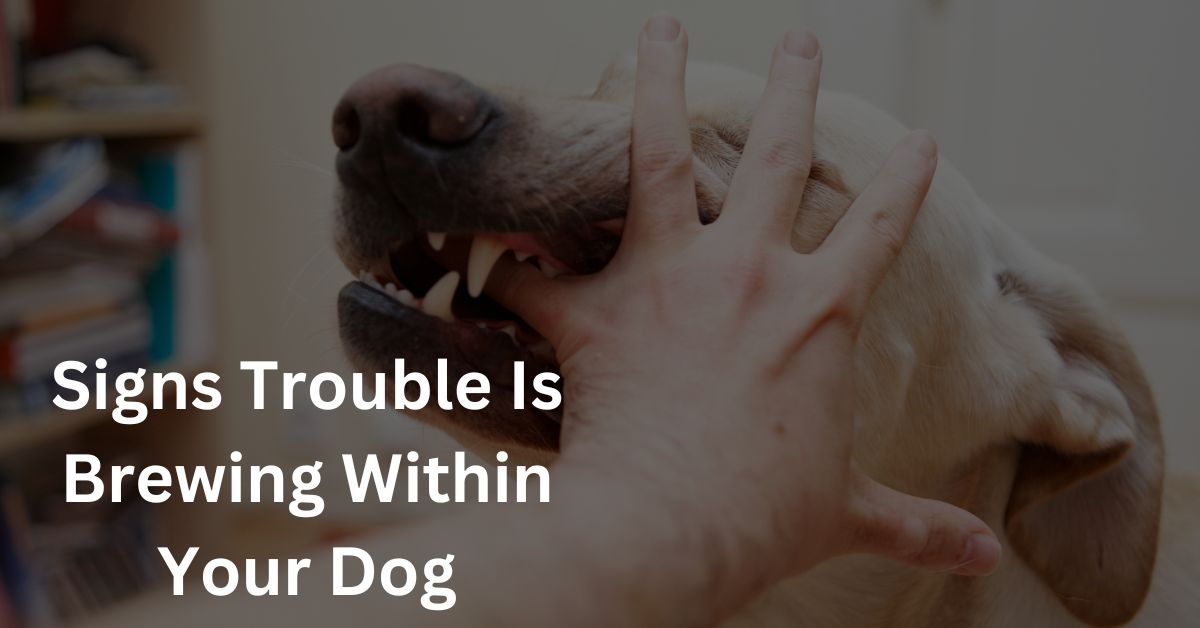Are you curious if your furry friend can munch on Brussels sprouts along with you? It’s a common question, given that these mini cabbages contain essential vitamins and nutrients.
Brussels sprouts are safe for dogs in moderation. High in fiber and vitamins, they can be a healthy treat. Cooked, plain, and chopped are best. Watch for digestive issues and introduce them slowly into their diet.
This blog post will delve into the pros and cons of feeding your dog Brussels sprouts, ensuring they enjoy this veggie safely. Read on for this savory scoop on canine cuisine!

The Benefits of Brussels Sprouts for Dogs
Brussels sprouts provide dogs with various vitamins, including vitamins K, A, and C, essential for their overall health and well-being.
Rich in vitamins K, A, and C
Brussels sprouts are great for dogs! They contain vitamins K, A, and C. Dogs need them to stay healthy. Vitamin K helps their blood to clot, which allows them to stop bleeding if they get hurt.
This vitamin also strengthens their bones and keeps the heart well by moving blood in a good way. Brussels sprouts have vitamin A too, which protects the dog’s immune system and keeps their fur nice and shiny – this is good news for your furry friends!
The last key thing to know about Brussels sprouts is their vitamin C, which also helps overall health.
Brussels sprouts provide antioxidants and fiber
Brussels sprouts pack a powerful punch of antioxidants for dogs. These tiny veggies hold compounds like kaempferol and lutein. Kaempferol helps lower any swelling in your pet’s body. Along with this, lutein protects the eyes from harm.
But there’s more to Brussels sprouts than just their antioxidant content! Fiber is another big win these vegetables bring to your dog’s diet. If your pup often suffers from digestion problems, add some finely chopped Brussels sprouts to their meal.
The high fiber will help keep your dog’s stomach healthy! But be prepared for the gas; Brussels sprouts are renowned for causing gas in humans and dogs!
Low in calories
Brussels sprouts are low in calories. This makes them a great treat option for your dog. They can help overweight dogs lose weight. If your dog is diabetic, Brussels sprouts may be good, too, as they have less sugar than many other foods. Always confirm with your vet before adding new foods for your dog.
Brussels sprouts are safe for dogs of all sizes due to their low-calorie content. So, if you want a healthy and tasty snack for your dog, Brussels sprouts are a good option!
Potential Risks of Feeding Brussels Sprouts to Dogs
Feeding Brussels sprouts to dogs can potentially cause digestion problems, choking hazards, and nutrient deficiencies.
Digestion problems
Feeding dogs excessive Brussels sprouts can cause digestion problems such as indigestion, upset stomach, and diarrhea. Even small to moderate amounts of Brussels sprouts can lead to flatulence and digestive upsets in dogs.
This is because the high fiber content in Brussels sprouts can have a laxative impact on dogs, resulting in vomiting, diarrhea, and dehydration. Feeding them cooked Brussels sprouts in moderation is best, and monitoring their reactions closely to avoid any gastrointestinal upset or discomfort.
Choking hazards
Brussels sprouts can be a choking hazard for dogs, especially if they are not appropriately chewed before swallowing. This is particularly true for raw Brussels sprouts that are small and have a firm texture.
Dogs may struggle to break down these vegetables, increasing the risk of choking. To minimize this risk, it is recommended to cut Brussels sprouts into bite-sized quarters, especially for smaller dogs.
By doing so, you can help ensure that your furry friend can enjoy the nutritional benefits of Brussels sprouts without any hazards.
Nutrient deficiencies
Feeding Brussels sprouts to dogs does not usually lead to nutrient deficiencies. These little green veggies contain essential vitamins and minerals, such as vitamins K, A, and C.
However, it’s essential to remember that Brussels sprouts should be given in moderation as part of a balanced diet. While they provide some nutrients, relying solely on Brussels sprouts for a dog’s nutrition can cause deficiencies in other essential nutrients.
It is always best to consult your veterinarian for guidance on what foods are appropriate for your furry friend’s needs.

How to Prepare Brussels Sprouts for Dogs
To prepare Brussels sprouts for dogs, cooking them and serving them without seasoning and in moderation is essential. Please consult with a veterinarian before introducing them into your dog’s diet. Chop and dice the Brussels sprouts for easier digestion.
Cooked and served in moderation
Cooking Brussels sprouts for dogs is the best way to serve them, as it preserves their nutritional value. Steaming is the recommended cooking method, as it helps retain essential nutrients. They can also be boiled or microwaved.
It’s vital to serve cooked Brussels sprouts in moderation as part of your dog’s diet, as too much can lead to gastrointestinal distress. Consult your veterinarian about how often and how much you should feed your furry friend.
By preparing and serving Brussels sprouts properly, you can ensure they are a safe and healthy addition to your dog’s diet.
Consult with a veterinarian.
Before introducing Brussels sprouts into your dog’s diet, we recommend to consult with a veterinarian. They can provide valuable guidance and advice based on your dog’s needs and health concerns.
If your dog has severe diarrhea or digestive issues, it is vital to seek veterinary guidance before feeding them Brussels sprouts. Your veterinarian will be able to assess whether Brussels sprouts are suitable for your dog and help determine the best way to incorporate them into their diet.
Every dog is different, so consulting with a professional will ensure you make informed decisions about your furry friend’s health and nutrition.
Chop and dice for easier digestion
Chopping and dicing Brussels sprouts into smaller pieces is essential when preparing them for dogs. Doing so makes the vegetables easier for dogs to eat and helps reduce the risk of choking.
Smaller pieces can also help prevent constipation in dogs by making it easier for their digestive system to process the food. This way, dogs can still enjoy the benefits of Brussels sprouts without experiencing any discomfort or digestive issues.
So remember, when feeding Brussels sprouts to your furry friend, chop and dice them first!
Recommended Serving Size for Dogs
The recommended serving size of Brussels sprouts for dogs depends on their size and breed. Larger dogs can generally eat more Brussels sprouts compared to smaller ones. It’s important to consider your dog’s needs and dietary requirements when determining how much they can safely consume.
Start with small amounts, one or two, and monitor for adverse reactions before gradually increasing the portion size if it suits your dog.
Remember, moderation is key when feeding your pup any new food!
Frequently Asked Questions
Can dogs eat Brussels sprouts?
Yes, dogs can eat Brussels sprouts in moderation if they are cooked and served plain without any seasonings or added ingredients.
Are Brussels sprouts healthy for dogs?
Brussels sprouts can be a healthy addition to a dog’s diet as they are low calory and high in fiber, vitamins, and minerals.
Can eating Brussels sprouts cause any harm to dogs?
While Brussels sprouts are generally safe for dogs to consume, overfeeding or serving them raw may lead to digestive issues like gas or stomach upset.
How should I serve Brussels sprouts to my dog?
Before feeding Brussels sprouts to your dog, ensure they are cooked thoroughly and cooled down. Cut them into small pieces or mash them for easier digestion before offering them as a treat or mixed with their regular food.
Final Thoughts
Dogs can eat Brussels sprouts in moderation. They are a good source of vitamins and antioxidants for dogs. However, it’s essential to cook Brussels sprouts, and don’t add any seasoning before feeding them to your dog.
Before You Go
If you would like to discover which other vegetables your dog can eat, you will find these articles helpful.




Leave a Reply